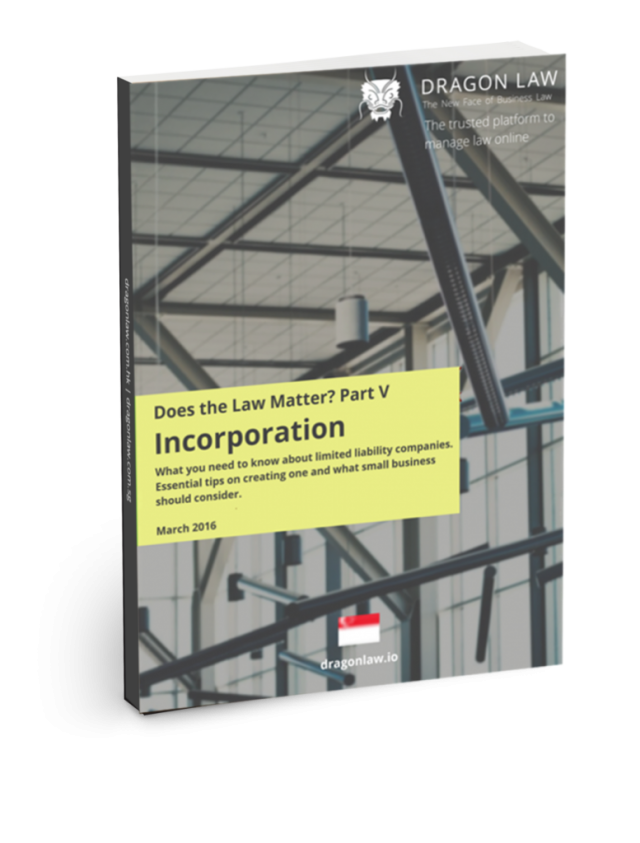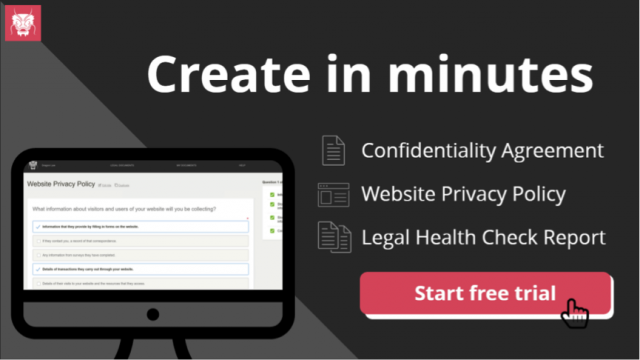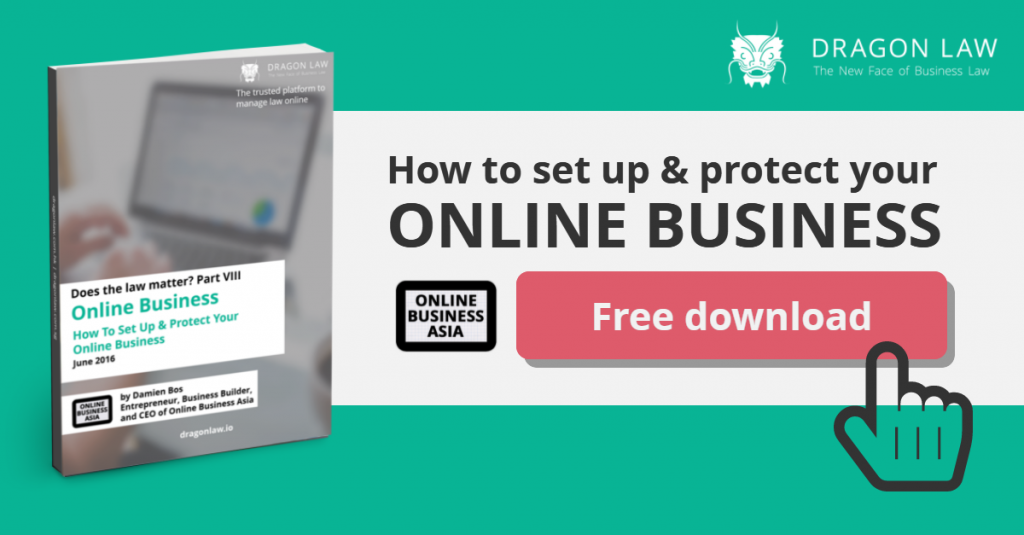How to successfully implement legal tech into in-house legal teams
The emergence of Legal Tech, or LawTech, represents a significant shift in the legal profession, mirroring the impact of FinTech on the financial industry.
Improving technology remains a top priority for legal firms, particularly in-house legal teams. This deep dive addresses questions about Legal Tech and its implementation.
What is legal tech?
Legal tech, not to be confused with legal for tech, refers to a suite of technologies designed to support, supplement, or outright replace traditional methods for delivering legal services and improving operational efficiency.
The Solicitors Regulation Authority (SRA) has recognised legal tech potential to revolutionise the legal landscape, offering parallels to the FinTech revolution in finance.
With the market already worth an estimated $28 billion in 2022 and expected to grow, legal tech’s scope for expansion and innovation is vast.
Unpacking the benefits of legal tech integration
The integration of legal tech offers many benefits to the legal industry.
Efficiency gains
One of the most significant advantages of legal tech is its ability to streamline operations. It automates routine tasks such as searching for contract terms or generating timelines, reduces the administrative burden on legal professionals, and frees up their time to focus on more complex and strategic activities.
Zegal, for instance, provides comprehensive solutions that encapsulate this efficiency through its platform, making legal processes more manageable and less time-consuming.
Enhancing transparency
The legal sector has historically been perceived as opaque, relying on complex jargon and processes.
Legal tech, however, is at the forefront of shifting this perception by offering user-friendly solutions that demystify legal processes. Platforms like Zegal play a pivotal role in this transformation, providing tools that promote clarity and understanding, thereby improving the overall quality of legal services.
Certainty and risk mitigation
Digitising legal processes through tech solutions significantly reduces the risk of human error and the loss of critical documents. Automated contract management systems will ensure that every piece of due diligence is accounted for, safeguarding against potential oversights.
Security enhancements
Data breaches are a constant threat, but legal tech offers robust security solutions, such as digital signatures and encrypted data rooms. These technologies secure sensitive legal documents and build trust with clients.
Navigating the barriers to legal tech adoption
Despite its advantages, the adoption of legal tech is challenging. Initial barriers often include:
Funding constraints
One of the primary obstacles to legal tech adoption is the initial investment required. Legal technologies, especially sophisticated solutions like AI-powered contract analysis tools or comprehensive case management systems, can be expensive.
Strategies for overcoming funding constraints:
- Cost-benefit analysis: Conduct a thorough cost-benefit analysis to understand the long-term savings and efficiency gains against the upfront costs. Demonstrating a clear ROI can help in securing budget approval.
- Phased implementation: Consider a phased approach to adopting legal tech, starting with more affordable solutions to demonstrate value before investing in more expensive technologies.
- Seek external funding: Explore options for external financing, such as grants, legal innovation funds, or partnerships with legal tech providers, which may offer favourable terms for new adopters.
A lack of tech literacy
The successful adoption of legal tech also hinges on the tech literacy of the legal team. A lack of familiarity with new technologies can slow down or even halt integration.
Strategies for enhancing tech literacy:
- Tailored training programs: Implement comprehensive training programs designed to bring staff up to speed on the new systems. Consider leveraging the training modules provided by tech vendors.
- Hiring tech-savvy staff: Enrich your team with professionals who can champion legal tech adoption and support their colleagues through the transition.
- Encourage continuous learning: Foster an organisational culture that values continuous learning and innovation. Provide opportunities for staff to engage with new technologies through workshops, seminars, and conferences.
Resistance to change within organisations
Resistance to change is a natural human instinct, especially in traditional professions such as the legal industry. Concerns over job security, a preference for established ways of working, and scepticism about the effectiveness of new tools can all contribute to resistance.
Strategies for managing resistance to change:
- Communicate benefits clearly: Ensure that the benefits of legal tech are communicated to all stakeholders. Highlight how it can alleviate burdensome tasks, allowing legal professionals to focus on higher-value work.
- Involve teams in the selection process: Engage potential users in decision-making. Allowing them to have a say in selecting legal tech tools increases buy-in and reduces resistance.
- Success stories and pilot programs: Share success stories and case studies from other organisations that have successfully adopted legal tech. Consider running a pilot program to demonstrate the technology’s practical benefits before a full rollout.
Overcoming these obstacles requires comprehensive planning, prioritisation, and the proper support to ensure legal teams can effectively integrate legal tech into their workflows.
A strategic approach to integrating legal tech
Selecting the right tools
The selection process is crucial to overcoming potential resistance to new technologies. Involving employees at all levels in choosing the right tools ensures buy-in and identifies solutions that address the most pressing needs.
Effective implementation
Beyond selection, successful implementation hinges on thorough training and engagement. Custom-built tools and platforms require a deep understanding to be used to their full potential, underscoring the importance of comprehensive onboarding processes.
Ongoing support and evolution
The fast-paced nature of technology means that legal tech solutions require regular updates and feedback to remain effective. Engaging with service providers like Zegal ensures that legal teams have continuous support and access to the latest advancements in legal tech.
Leveraging legal templates
Legal templates, from NDA templates to shareholder agreements, are among the most transformative tools available to in-house legal teams. They serve as a foundational element for swiftly creating consistent, compliant, and professionally structured documents.
By starting with a template, legal professionals can significantly reduce the time and effort involved in drafting documents from scratch and ensure that all necessary legal and regulatory provisions are included.
Benefits of using legal templates
- Efficiency and time savings: Legal templates streamline document creation, allowing legal teams to produce necessary documents much faster than traditional methods. This efficiency frees up time for legal professionals to focus on more strategic tasks.
- Consistency and compliance: Templates provide a standardised format that ensures consistency across all documents. Moreover, because templates can be updated to reflect the latest legal requirements, they help maintain compliance with current laws and regulations.
- Reduced risk of errors: Using a pre-vetted legal template minimises the risk of omitting crucial clauses or incorporating outdated legal language, reducing the likelihood of contractual disputes or compliance issues.
- Accessibility for non-legal professionals: Legal templates demystify the document creation process for individuals without legal training, making it easier for other departments to draft preliminary documents without immediate legal input.
Customisation and flexibility
While templates offer a solid starting point, customisation is vital to ensuring that each document accurately reflects the specific needs and circumstances of the transaction or matter at hand.
Zegal grants users access to various legal templates and customises them to suit their unique requirements. This flexibility allows for creating legally sound documents that are perfectly tailored to the specific context in which they will be used.
Implementing legal templates into daily operations
Integrating legal templates into the daily operations of an in-house legal team involves several steps:
- Template selection: Begin by identifying the most commonly used documents within your organisation and selecting templates for these documents as your starting point.
- Customisation process: Use platforms like Zegal to customise these templates, ensuring they align with your organisation’s legal and operational requirements.
- Review and approval: Establish a review process for customised templates to ensure they meet legal standards and receive approval from senior legal team members.
- Training and access: Provide training for the legal team and relevant non-legal staff on accessing and using these templates. Ensure everyone understands the importance of sticking to approved templates to maintain consistency and compliance.
- Ongoing updates: Review and update the templates regularly to reflect any changes in law, regulation, or company policy, maintaining a cycle of continuous improvement.
The role of Zegal
Platforms like Zegal play a crucial role in this process, providing a repository of legal templates and a comprehensive legal document management environment.
With features that support customisation, collaboration, and electronic signature, Zegal offers a holistic solution for leveraging legal templates effectively within in-house legal teams.
The platform facilitates the drafting and customisation of documents, their execution, and storage, creating a streamlined workflow from start to finish.
Contract automation
Contract automation stands out as a transformative solution for in-house legal teams. This technology harnesses the power of legal tech to simplify and accelerate the contract lifecycle, from initial drafting to final approval and execution.
Integrating contract automation into legal departments’ processes can achieve unparalleled efficiency, accuracy, and operational agility.
Understanding contract automation
Contract automation involves using software to automate legal contract creation, negotiation, approval, and management. This technology leverages pre-defined templates and rules to generate contracts, streamlines the review and editing process through collaborative tools, and often includes digital signing capabilities to expedite execution.
The ultimate goal of contract automation is to minimise manual tasks, reduce the risk of human error, and shorten contract cycles.
Key benefits of contract automation
- Increased efficiency: Automating repetitive tasks and utilising templates for standard agreements drastically reduces the time required to produce contracts. This efficiency allows legal teams to focus on more strategic aspects of their roles, such as risk management and compliance.
- Enhanced accuracy: By standardising contract creation, automation reduces the likelihood of errors and inconsistencies. This ensures all contracts comply with current laws and company policies, mitigating legal risks.
- Improved collaboration: Contract automation platforms often feature tools that enable real-time editing, commenting, and version control. This fosters better communication between legal teams, stakeholders, and external parties, facilitating smoother negotiations and faster consensus.
- Streamlined approval processes: Automated workflows can route contracts to the appropriate parties for review and approval, ensuring that no time is wasted and all necessary checks are in place before a contract is executed.
- Easier contract management and retrieval: Storing contracts in a centralised digital repository makes managing and retrieving documents more accessible. Advanced search capabilities and tagging mean users can quickly find specific contracts or clauses as needed.
Implementing contract automation with Zegal
Zegal is at the forefront of contract automation, offering robust solutions designed to integrate seamlessly with the workflows of in-house legal teams. Here’s how organisations can leverage Zegal for effective contract automation:
- Template customisation: Customise legal templates within Zegal for your most frequently used agreements. This ensures that your automated contracts align with legal and business requirements.
- Workflow design: Utilise Zegal’s workflow design features to establish automated processes for contract review, approval, and execution. This includes setting up notifications and reminders to keep contracts moving efficiently through the pipeline.
- Collaboration and negotiation: Use Zegal’s collaborative tools to negotiate contract terms directly within the platform. This speeds up the negotiation process and maintains a clear audit trail of changes and discussions.
- Digital execution: Leverage Zegal’s electronic signature capabilities to enable parties to sign contracts digitally, further reducing turnaround times and facilitating remote transactions.
- Contract management: Finally, use Zegal to store and manage completed contracts. The platform’s robust search and management features make it easy to keep track of contractual obligations, renewal dates, and compliance requirements.
The impact of contract automation
The impact of contract automation on in-house legal teams cannot be overstated. Freeing legal professionals from time-consuming administrative tasks allows them to devote more energy to strategic decision-making, risk assessment, and proactive legal counselling.
Moreover, contract automation’s enhanced speed and agility enable businesses to respond more quickly to market changes, secure deals faster, and maintain a competitive edge.
Speeding up contract execution with bulk e-signing
Bulk e-signing is a groundbreaking feature of modern legal technology, redefining the efficiency and scalability of executing contracts and legal documents.
As businesses grow and the volume of contracts increases, a streamlined, secure, and time-saving document signing becomes paramount.
The essence of e-signing
Bulk e-signing allows multiple documents to be signed electronically by one or more signatories in a single action. This technology bypasses the traditional, cumbersome process of signing legal documents individually, offering a seamless and expedited path to document execution.
By integrating bulk e-signing into their workflows, legal teams and businesses can significantly accelerate the contract execution phase, ensuring legal agreements are finalised promptly and efficiently.
Advantages of bulk e-signing
- Enhanced efficiency: Bulk e-signing reduces the time and effort involved in the signing process. Legal teams can send out dozens or even hundreds of documents for signature in the time it would take to manually process just a few, freeing up valuable time for other tasks.
- Improved accuracy and compliance: By automating the signing process, bulk e-signing minimises the risk of human error, such as missed signatures or misplaced documents. It ensures that every document is signed correctly and complies with legal requirements, reducing the risk of disputes or compliance issues.
- Scalability: As organisations grow, so does the volume of contracts and legal documents requiring signatures. Bulk e-signing scales effortlessly to meet increasing demands, making it an ideal solution for businesses of all sizes.
- Cost reduction: Bulk e-signing eliminates the need for physical document handling, including printing, mailing, and storing paper documents. This reduces direct costs and contributes to environmental sustainability by decreasing paper use.
- Enhanced security: Digital signatures used in bulk e-signing are encrypted, providing higher security than traditional signatures. They also include a tamper-evident seal and an audit trail, ensuring the integrity and authenticity of signed documents.
Implementing bulk e-signing with Zegal
Zegal’s platform offers robust bulk e-signing capabilities designed to integrate seamlessly with the needs of modern businesses and legal teams. Here’s how to leverage Zegal for efficient bulk e-signing:
- Document preparation: Start by preparing the documents that require signatures, using Zegal’s template library and customisation tools to ensure they meet your specific needs.
- Signatory identification: Identify the parties required to sign each document. Zegal allows for flexible signatory assignments, accommodating various signing scenarios and hierarchies.
- Bulk sending: Upload and send multiple documents for signature in a single batch. Zegal’s intuitive interface simplifies this process, guiding users through each step.
- Tracking and management: Use Zegal’s tracking features to monitor each document’s status in real-time. Receive notifications as documents are signed and easily follow up on outstanding signatures.
- Secure storage: After signing documents, they are automatically stored in Zegal’s secure, cloud-based repository. This facilitates easy access and management of executed contracts.
Bulk e-signing is not just a feature; it’s a strategic tool that propels businesses into the future of digital contract execution. Its adoption signifies a commitment to operational excellence, leveraging technology to streamline processes, enhance compliance, and drive business growth.
As legal tech advances, bulk e-signing stands out as a critical enabler of efficiency and scalability in the digital age.
Embracing legal tech: A future imperative
The integration of legal tech represents a forward-thinking approach to legal practice, offering unparalleled benefits in efficiency, security, and accessibility.
While the path to full integration may present challenges, the strategic application of resources, careful planning, and support
Platforms like Zegal play a crucial role in this process, providing a repository of legal templates and a comprehensive legal document management environment.
With features that support customisation, collaboration, and electronic signature, Zegal offers a holistic solution for leveraging legal templates effectively within in-house legal teams.











